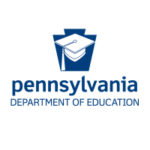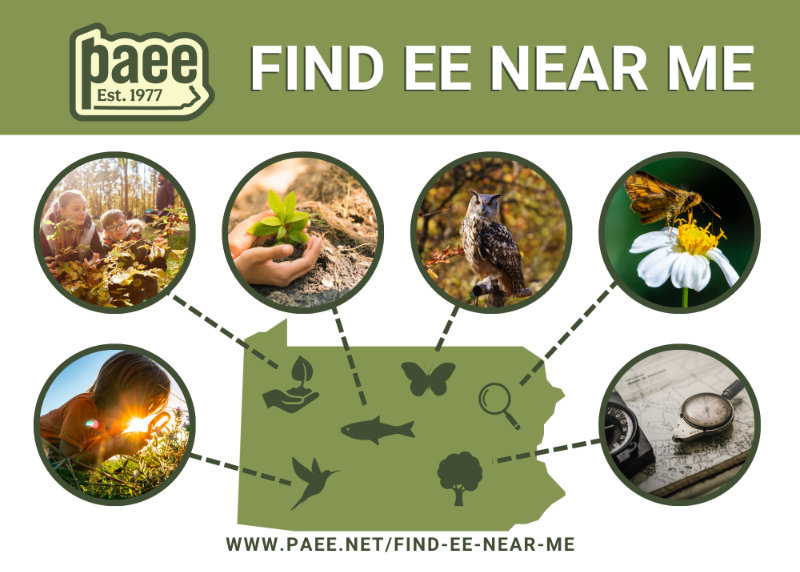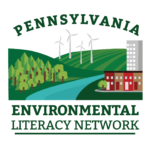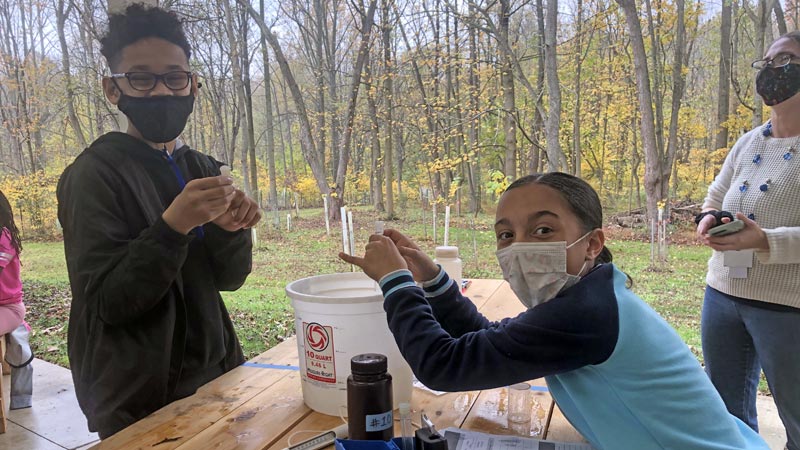
The Meaningful Watershed Educational Experiences (MWEE) framework is promoted across the Commonwealth by the Pennsylvania Department of Education, the Pennsylvania Department of Environmental Protection, the Pennsylvania Environmental Literacy Network, and other organizations as the education approach of learner-centered experiences that focus on investigations into local environmental issues that lead to informed action and civic engagement.
MWEE Q & A
A truly effective MWEE is place-based. It catapults students into environmental discovery, inquiry, and action in the story of their local community and watershed.
How Do I Learn More About the MWEE Model for Watershed Education?
Become a MWEE Ambassador! To become a MWEE Ambassador in Pennsylvania, you must complete the MWEE 101 Online Course and a 6-hour workshop led by a Pa. MWEE Facilitator.
How Do I Learn to Implement MWEEs in My Classroom or Support Schools in MWEEs From My Environmental Education Organization?
Continue your MWEE training by attending additional/advanced workshops to learn how to organize and design activities and curricula following the MWEE framework. Advanced workshops offered across the state include:
- A week-long summer professional development.
- An Act 45 course for school administrators.
- In-depth workshops focusing on student voice, civic and environmental action projects, using the Environmental Literacy Model to plan your MWEE, and advanced knowledge and skills in watershed education.
What Steps Are Required to Reach the Different Pa. MWEE Designations?
As your experience with MWEEs grows, there are specific steps to reaching new roles — from Ambassador to Trainer.
- Ambassador: You must complete MWEE 101 and six to 15 hours of instructional time with field experiences. This may include Act 48 hours and continuing education units (CEUs).
- Educator: You must be a Pa. MWEE Certified Ambassador, complete 18 hours of instructional time with field experiences, and develop an Environmental Literacy Model. This may include Act 48 hours and CEUs.
- Facilitator: You must be a Pa. MWEE Certified Ambassador or Educator, complete 12 hours of instructional time with field experiences, have one year of experience facilitating MWEEs, co-plan and lead first workshop with a Certified Trainer, and participate in Cross-Sector Partner Convenings. This may include Act 48 hours and CEUs.
- Trainer: You must be a Pa. MWEE Certified Facilitator, have served as an MWEE Facilitator for at least three years, and participate in Cross-Sector Partner Convenings. This requires a letter of intent to the PA ELIT Network Steering Committee for review.
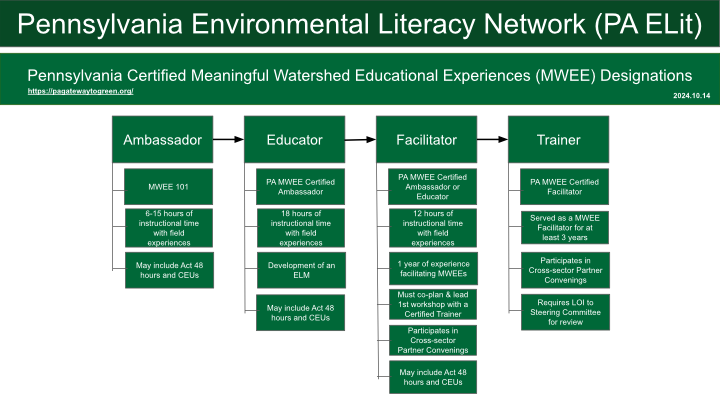
How Are Exceptional MWEE Efforts Recognized and Celebrated?
First awarded in 2020, Pennsylvania presents the Pennsylvania MWEE Partner and School of Excellence Awards at the Pennsylvania Association of Environmental Education (PAEE) annual conference. Learn more about the awards’ criteria and apply at PAEE’s website.
Watershed Education Resources
Chesapeake Bay Program partners have created the MWEE Guide, case study videos, and many other resources available on the Bay Backpack website.
Pennsylvania MWEE Facilitator Resources
Pennsylvania MWEE Certified Facilitators lead different MWEE-related professional development opportunities across the state. These resources help facilitators plan, lead, and track MWEE workshops.
- Pennsylvania’s Facilitator’s Guide to MWEE Training
- Pennsylvania MWEE Prep and Reporting Process: This slide outlines the steps required to facilitate a MWEE workshop, from planning to reporting.
- Pennsylvania MWEE Professional Development Proposal Form: Complete this online form when planning a MWEE workshop.
- Pennsylvania MWEE Professional Development Reporting Form: Complete this online form after facilitating a MWEE workshop.
The following files can be downloaded from Google Drive. If you have trouble accessing them, please email webmaster@stroudcenter.org.
- MWEE Ambassador Workshop Agenda Template
- MWEE Ambassador Workshop Slideshow Template
- MWEE Workshop Sign-In Sheet
- Pennsylvania Watershed Issue Identification Cards
- MWEE Think Cloud




